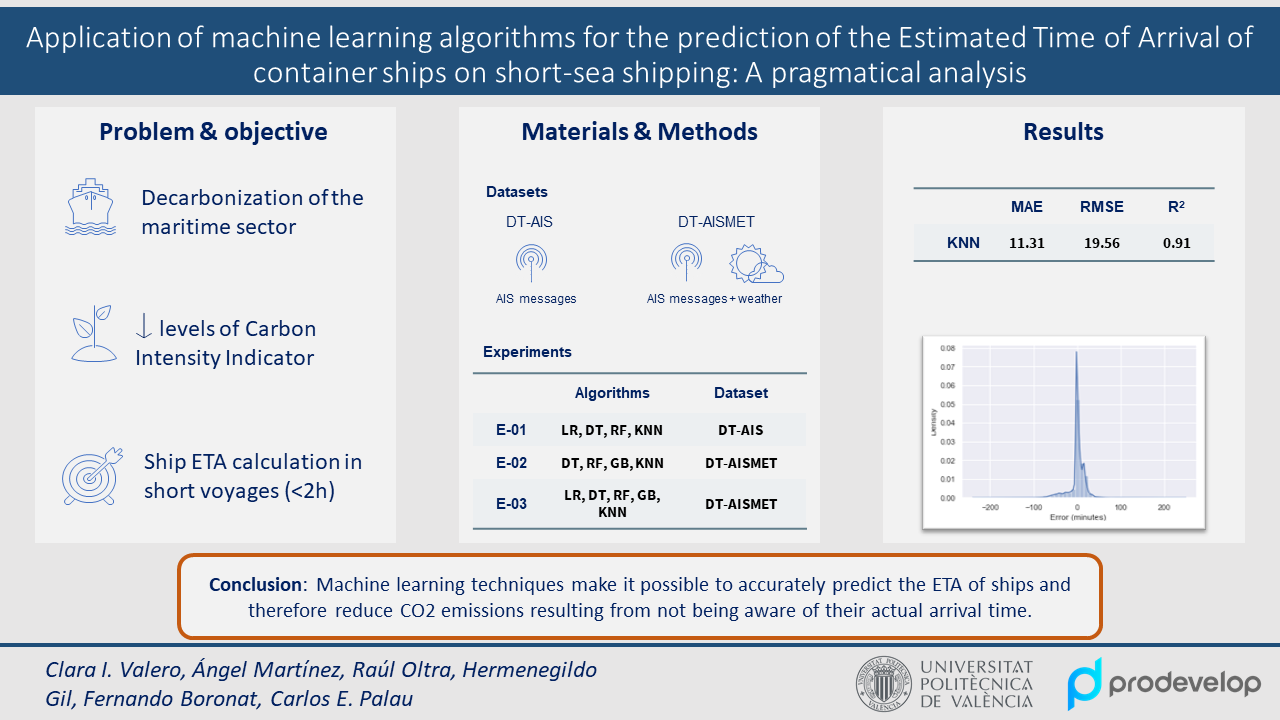Prediction of the Estimated Time of Arrival of container ships on short-sea shipping: A pragmatical analysis
Keywords:
Maritime Logistics, Automatic Identification System, Estimated Time of Arrival, Machine Learning, Short-Sea Shipping, Green Transition, DecarbonizationAbstract
Fighting against climate change and global warming is one of the biggest challenges faced by the Maritime Industry nowadays to make the supply chain greener and environmentally sustainable. Cutting greenhouse gases (GHG) emissions and decarbonizing the international shipping has been a paramount activity for the International Maritime Organization (IMO) since the first set of international mandatory measures to improve ships' energy efficiency and reduce CO2 emissions per transport work, as part of the International Convention for the Prevention of Pollution from Ships (MARPOL) released in 2011. Besides that, changes in consumption habits around the globe (i.e., digitalization and growth of e-commerce) plus disruptive events like the COVID-19 or the blocking of the Suez Canal, to name only a few, have also highlighted the need for building more resilient maritime transport networks. In this work, a pragmatical analysis of the principal machine learning algorithms has been carried out to provide a qualitative prediction of the Estimate Time of Arrival (ETA) of container vessels applied to short-sea shipping where the distance between ports is reduced. By exploiting both, the Automatic Identification System (AIS) and meteorological data gathered over a desired area of interest, the developed approach delivers a model capable of predicting the ETA of ships where the reaction time of the stakeholders involved in the management of the Port Call is very reduced (i.e., less than two hours of sailing between ports) and therefore, tolerance for error is low. Very positive results were obtained for the training dataset collected under real conditions for more than a year. The best results were obtained by the RF model with a Mean Absolute Error (MAE) and Root Mean Square Error (RMSE) of 11.31 and 19.56 minutes respectively.
Downloads


